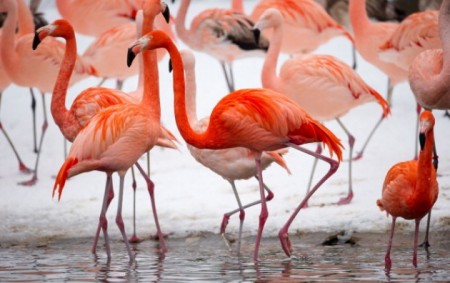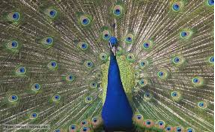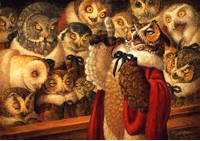The Weird Collective Nouns You Never Knew
 We all know that English is, quite frankly, weird. There are many words and phrases in the English language which make you stop and think, “What on Earth is that all about?” However, few elements of it are more bizarre than some of the collective nouns used for animals. Here are a few you probably haven’t come across yet.
We all know that English is, quite frankly, weird. There are many words and phrases in the English language which make you stop and think, “What on Earth is that all about?” However, few elements of it are more bizarre than some of the collective nouns used for animals. Here are a few you probably haven’t come across yet.
A Shrewdness of Apes
Apes probably are pretty shrewd, aren’t they? I remember seeing once on a TV documentary how they can use tools to hunt in a way which is, well, shrewd. However, if we are going to use this sort of collective noun for primates where will it all end? If we extend the concept to humans then we could have a craftiness of insurance salesmen and a cunningness of traffic wardens. This is quite a good idea, as it lets you know who to be most wary of in your daily life.
An Ostentation of Peacocks
 This one makes a bit of sense as well. Maybe these collective nouns aren’t quite as randomly outrageous as we all think they are. After all, if any animal in the world is ostentatious it is our colourful old friend the peacock. If we relate it to the human world again we might be able to use a flamboyance of reality show contestants or a pomposity of overpaid football players.
This one makes a bit of sense as well. Maybe these collective nouns aren’t quite as randomly outrageous as we all think they are. After all, if any animal in the world is ostentatious it is our colourful old friend the peacock. If we relate it to the human world again we might be able to use a flamboyance of reality show contestants or a pomposity of overpaid football players.
A Parliament of Owls
 The word parliament gives us a satisfyingly vivid image of owls sitting around in the House of Commons debating new laws. One thing we need to bear in mind is that these weird collective nouns are all quite old. In fact, there are some people who will tell you that nearly all the collective nouns for animals we use came from the fevered mind of a 15th century lady hunter named Juliana Berners. This might help to explain why some of the words used sound so strange to modern ears. On the other hand, she might just have been a fruit loop who liked to use words which were unusual even then.
The word parliament gives us a satisfyingly vivid image of owls sitting around in the House of Commons debating new laws. One thing we need to bear in mind is that these weird collective nouns are all quite old. In fact, there are some people who will tell you that nearly all the collective nouns for animals we use came from the fevered mind of a 15th century lady hunter named Juliana Berners. This might help to explain why some of the words used sound so strange to modern ears. On the other hand, she might just have been a fruit loop who liked to use words which were unusual even then.
A Tower of Giraffes
This is another collective noun which sounds strange at first but which makes sense in an instinctive sort of way. Perhaps at this point we should consider that the old collective nouns we use now were invented when most people didn’t know what the animals in question really looked like. Someone who lived in Britain a few centuries ago had probably never seen a giraffe in their life. This is why these striking collective nouns are so useful for helping them picture the exotic animal in question.
A Mustering of Storks
I have to confess that I am stumped on this one. Why would you look at a bunch of storks and think, “Oh look, there’s a mustering over there”? Muster or mustering is a collective noun which is used for other animals and birds too (horses and peacocks can be referred to in this way, apparently). Perhaps the origin comes from the military connotations involved in troops coming together for duty. The origin of this and other collective nouns may have been lost in the mists of time but they are great fun to learn.
What is your favourite weird collective noun or what alternative words could you suggest we use for some animals?


